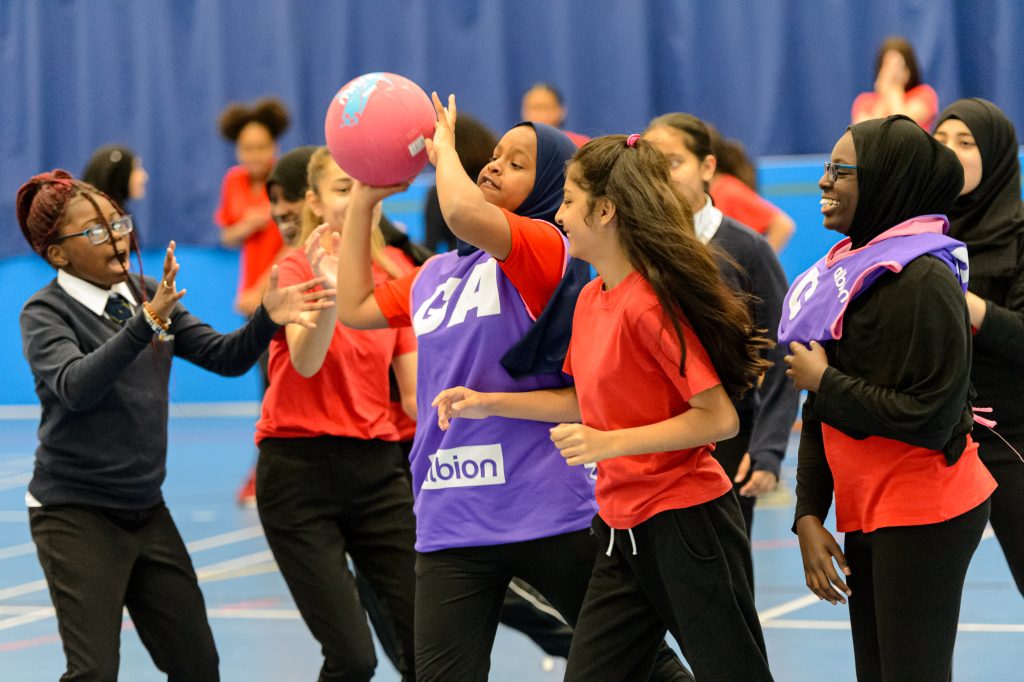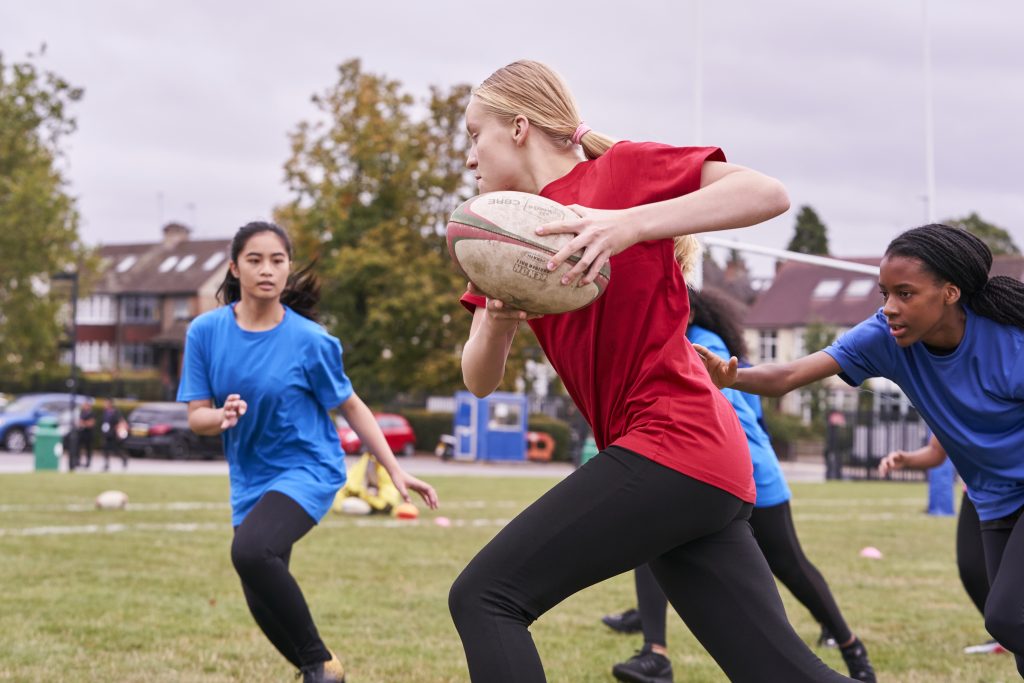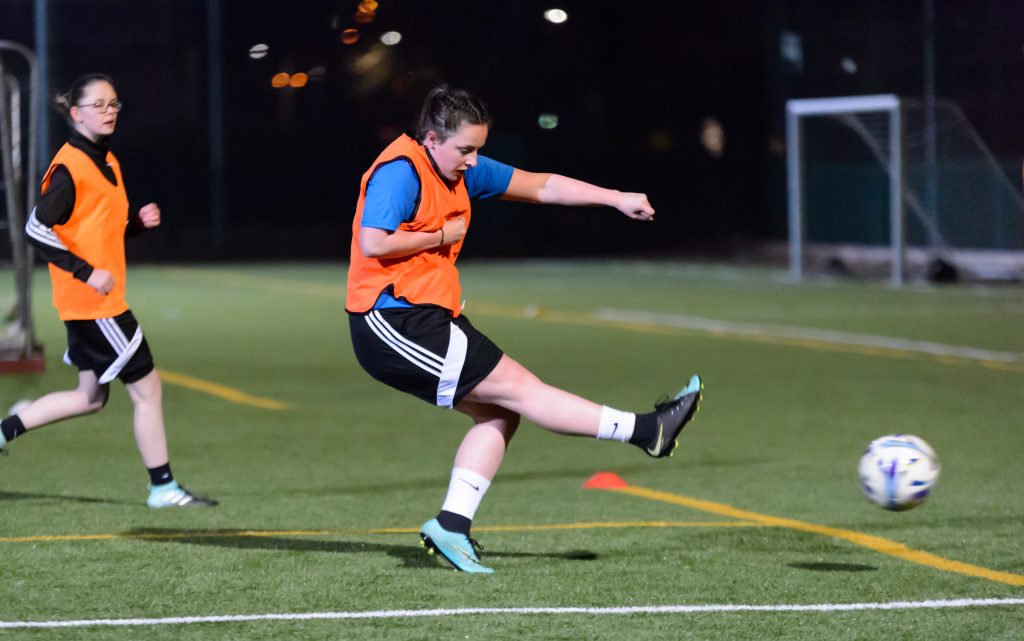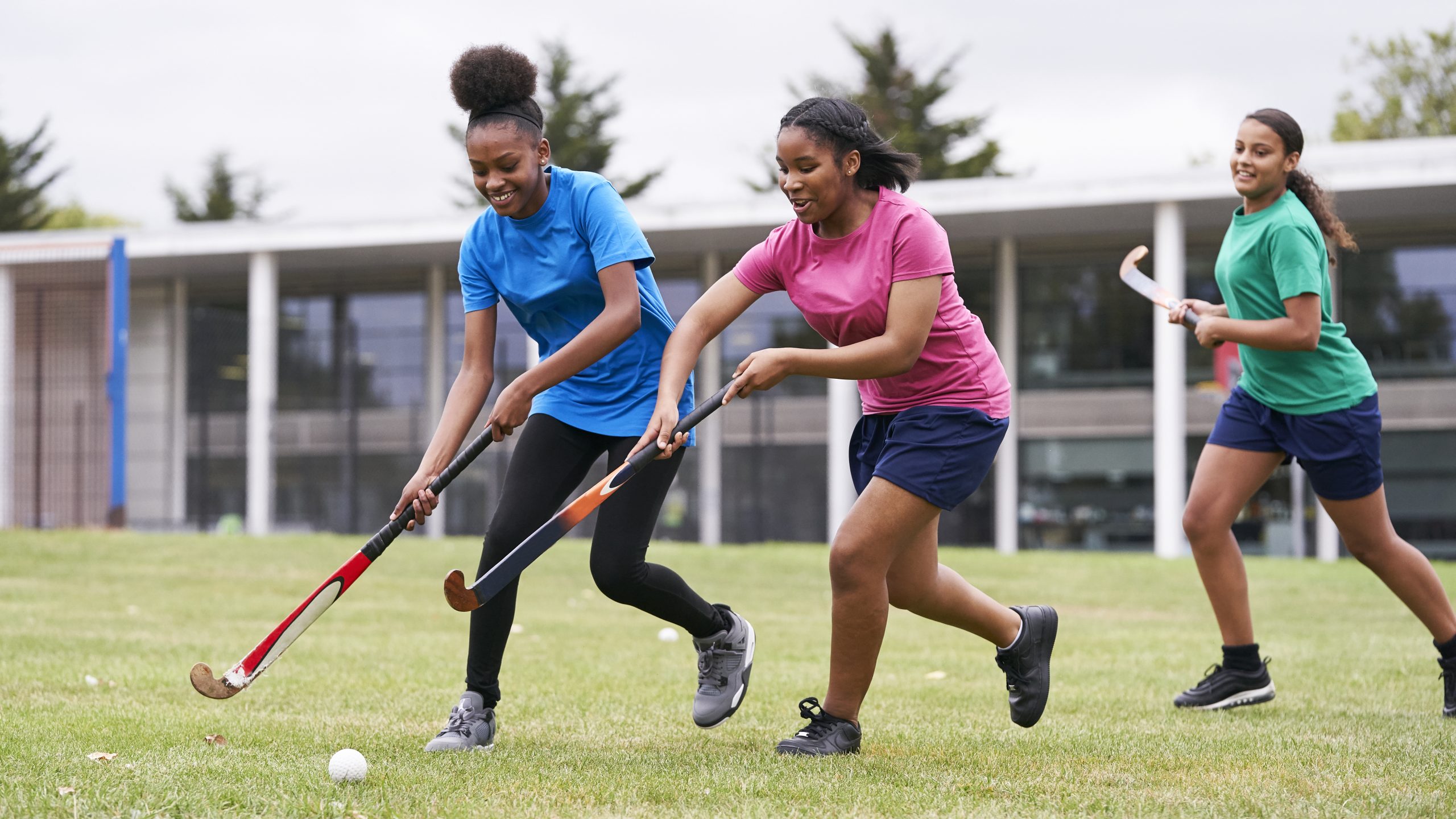What has been announced?
On 19 July the Government published an updated School Sport and Activity Action Plan for England. This gave further detail about its previous announcement in March. The commitment is to two years of continuation funding for PE at primary schools, new funds for opening up school facilities outside hours, continued support for the Youth Sport Trusts’ School Games organisers and new digital resources.
Women in Sport welcomes the Government’s commitment to ensuring schools deliver two hours of high-quality PE per week. We also celebrate the recognition of the value of sport as a vital part of education and the acknowledgement that PE and extra-curricular activities are integral to a well-rounded school experience. For too many schools, P.E. is treated as a “nice to have” or an afterthought. The seriousness of physical activity as a central aspect of building a thriving society in good physical and mental health, is often overlooked.

However, we don’t believe the two-year timeframe covered by the Action Plan is long enough to deliver the significant changes needed within school sport. A more ambitious approach with longer-term planning and funded is required to provide teachers and school leaders with the certainty and resources they need to make much-needed change.
What does this mean for girls?
There has been no new funding announced for girls’ sport at school in either the March announcement or the Action Plan. Rather there is a requirement being put on schools to offer equal access to sports for girls and boys. It is absurd that this is not already happening. Yet, research by the FA in November last year showed that 75% of primary schools and only 41% of secondary schools surveyed gave equal access to football to girls. In the context of the historic ban on women playing football on FA grounds, the FA is rightly determined to ensure that girls in 2023 have equal chance to play the game. We must also celebrate the commitment of the Lionesses to social change and their leadership.
The Team Sport Gender Gap
Team sport should be a part of the PE and after-school offer, as it is not only important for physical health, but it helps build resilience, self-belief, courage and pivotal life skills. But the disparity between boys and girls in team sports such as hockey, football, rugby and cricket is unacceptable, with 860,000 fewer girls than boys experiencing the unique skills and joy team sport can offer.
Women in Sport is determined to close the 22% team sport gender gap and see more girls getting the chance to play team sport. We know some girls are getting these opportunities, but it depends heavily on parents or privilege. School sport could be the great leveller. PE lessons, the playground, after school clubs and extra-curricular sport must all change to take into account the needs of girls.

Is it enough to provide equal access?
It is not as simple as that. We know that the key factors in providing a positive school sport experience for girls are more complex than just simply allowing girls in. We need to build girls’ skills so there’s a level playing field.
Girls start at a disadvantage. Our research shows that gender stereotyping starts at a young age, greatly affecting girls’ dreams and expectations in sport. Girls are told to stay away from mud, to be kind, and often encouraged to focus on aesthetic sports if any sport at all. In contrast to boys, girls are often discouraged from pursuing sports that develop skills in throwing, catching and kicking. The starting point is unequal and the boys’ resultant sporting skills perpetuates the expectations that have surrounded them that girls are less capable in sports.
Just as boys may start school with less fine motor skills so their writing skills are weaker, so girls are starting with less sporting skills. Considerable effort is put in to bringing boys’ writing skills up to those of the girls, but it is rare to see comparable effort going in to correcting the imbalance in sporting skills. This is not about dumbing sport down for girls. Girls should be expected to succeed.
So what should be done about this?
We look forward to the publication of the forthcoming non-statutory Guidance, scheduled to be published by the end of 2023. We are keen to input to the preparation of this guidance to ensure it is gendered, based on our ground-breaking research.
The quality of PE is key, not just the quantity. Two hours of poorly delivered PE, that reinforces gender stereotypes, leaving girls at the sidelines, could be worse for girls than one hour of high-quality, inspiring PE which challenges those stereotypes.

To achieve a real change in sport and beyond, we must address the societal limitations we are putting on our girls through deep rooted cultural change. But almost all girls at school will already have been exposed to stereotyping so teachers and coaches need training to understand this.
Primary generalist teachers need support to understand the distinct needs of girls to deliver school sport well for them. We should empower our teachers to inspire girls to find their love of sport and activity, in part through understanding stereotyping and its implications.
Secondary PE teachers need to offer single-sex opportunities for girls in view of ongoing social pressures on them and the divergent physicality of boys and girls at this age. They also need to have the knowledge and skills to support girls through the management of female puberty as it affects sport.
School is fundamental to girls’ future relationship with sport. A good experience can set them up for an active life, a poor experience can do the opposite. We must get school sport right for girls. This Action Plan is a welcome first step on that journey, but it is only the first step.




